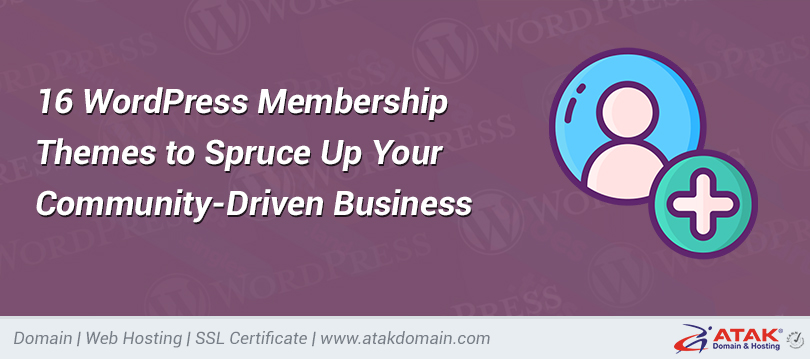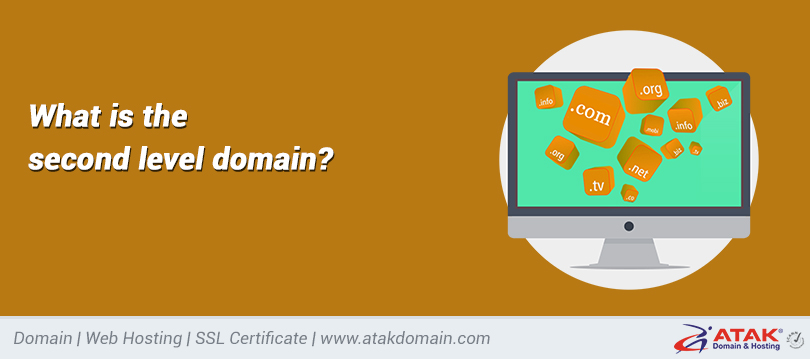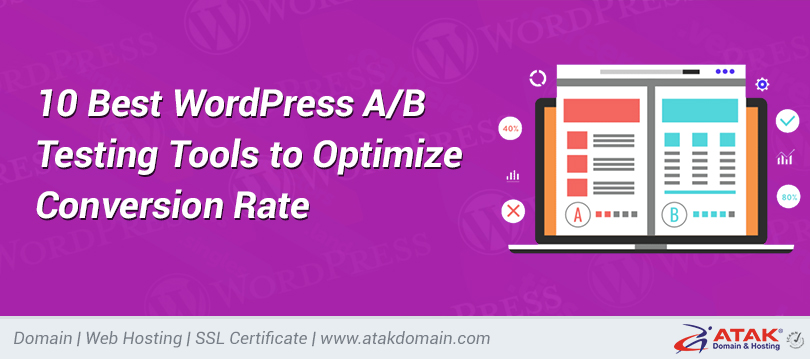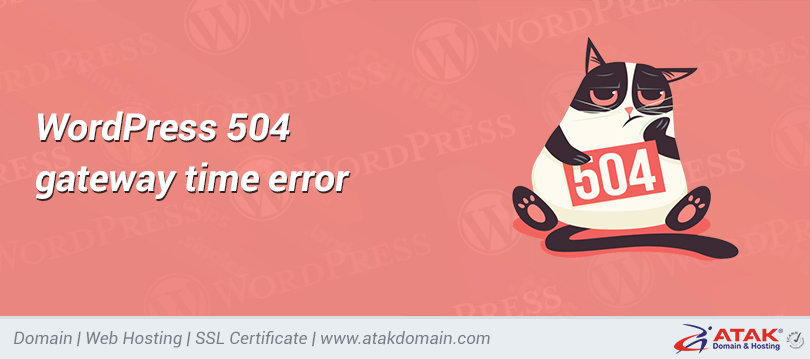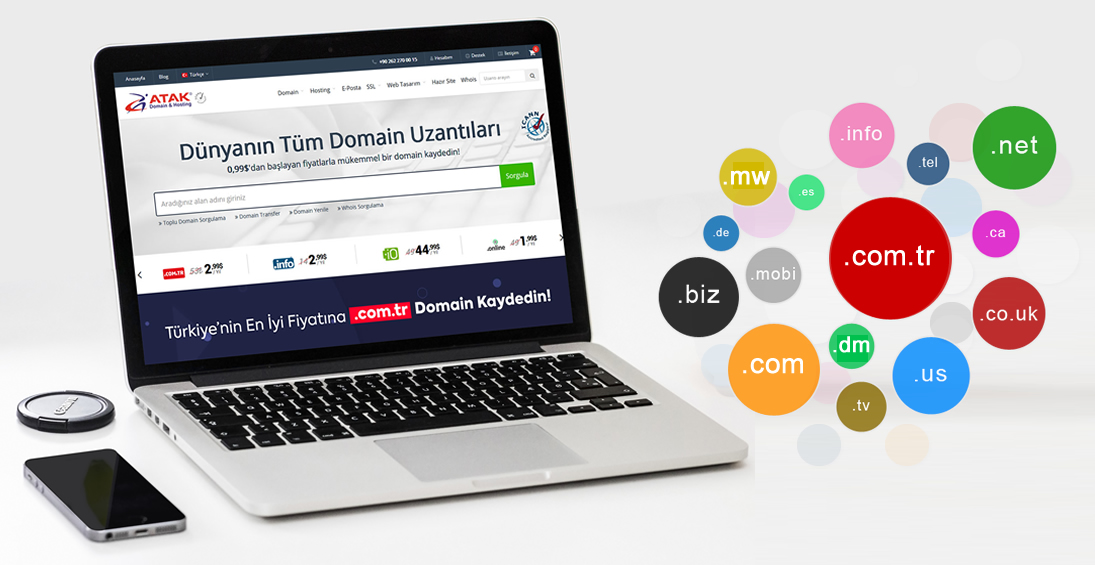

What is the general top level domain?
If you've ever spent time on the Internet, you've likely entered a gTLD, or generic top-level domain, in the search bar. The vast majority of websites own one, and they exist to make the Internet a more organized place. However, what exactly is a gTLD, where did it come from, and how could it be used to your advantage?
Before delving into these questions, it is helpful to explain how to quickly organize Internet and web addresses.
DNS, Domain Name System
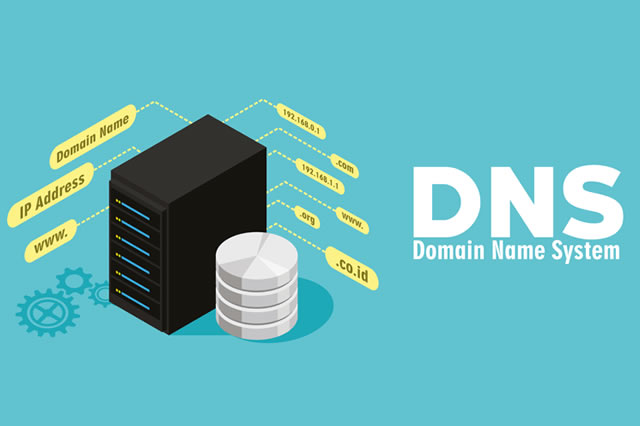 According to a survey in January 2018, there are currently 1,805,260,010 websites online. That's 1.8 billion individual web addresses found on the internet, with more being added every day. Organizing all these web addresses seems like a daunting task, but thanks to the Domain Name System (DNS), which was developed in 1983, the process is simplified.
According to a survey in January 2018, there are currently 1,805,260,010 websites online. That's 1.8 billion individual web addresses found on the internet, with more being added every day. Organizing all these web addresses seems like a daunting task, but thanks to the Domain Name System (DNS), which was developed in 1983, the process is simplified.
Think of DNS as the Internet phonebook. Every web address - like Atakdomain.com - is represented as an IP address, which is a long string of numbers that serves as the home address of a website (much like the home address that matches your home or apartment.)
DNS helps translate IP addresses into domain names. Domain names are an easier way to remember web addresses - they are shorter and more practical for humans than a long string of numbers.
Domain name components
- Domain names consist of multiple parts, but only two of them are essential components. On either side of the "dot" is the web address.
- To illustrate how the web address is split, we'll use Atakdomain.com as an example. Atakdomain.com has two components, a second level domain (SLD) and a top level domain (TLD).
- Second-level domain (SLD): Second-level domain is the text to the left of the point in Atakdomain.com specifically the word "domain". All web addresses have a second level domain, which is used to distinguish one website from another.
- Top-level domain (TLD): A website's top-level domain, or TLD, distinguishes websites from one another, and also helps define the website's content. In Atakdomain.com, a TLD is the character string that lies to the right of the period, specifically, ".com".
There are over a thousand unique TLDs, but the most famous and distinctive ones are known as generic top-level domains, or gTLDs.
It all starts with the right domain. Get yours today at Atakdomain.com.
What is gTLD?
There is a certain irony about the word "public" in the phrase "generic top-level domain" or gTLD. A generic word that means something unusual, vulgar, and common - however, websites that use generic top level domain are respected, sought-after, and of value to the companies and individuals who use them.
Understanding the history of gTLDs can help explain why this is so.
History of gTLDs
The first wave of gTLDs was released in the 1980s, shortly after the invention of the Internet. It was developed to help the first generation of Internet users organize their websites. Although they are over 30 years old, the original seven gTLDs are among the most popular top-level domains on the Internet. The original seven are:
- .om
- .edu
- .gov
- .int
- .mil
- .net
- .org
You've likely seen or learned about most, if not all, of these gTLDs.
Because of how recognizable these gTLDS are, the domain names they contain are often considered more valuable than domain names using some of the more obscure TLDs that have been developed in the past several years.
gTLDs vs ccTLDs
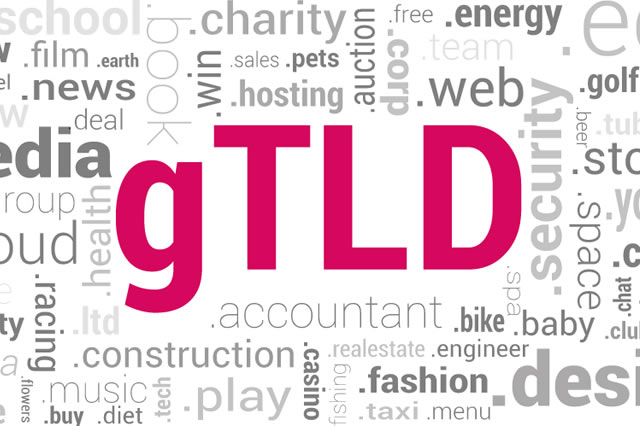 Top-level domains can be divided into multiple categories. Two of them are gTLDs, like the seven mentioned above, and ccTLDs, which stands for "country code top-level domains". Just like gTLDs, ccTLDs are represented by a string of characters that comes directly after the period in a web address.
Top-level domains can be divided into multiple categories. Two of them are gTLDs, like the seven mentioned above, and ccTLDs, which stands for "country code top-level domains". Just like gTLDs, ccTLDs are represented by a string of characters that comes directly after the period in a web address.
Unlike gTLDs, ccTLDs define a country, independent territory, or sovereign country. If the web address includes a ccTLD, it is safe to assume that the website points to a specific geographic location.
A report was released in 2018 listing the 10 most popular ccTLDs in the world. Here they are, in order of importance.
- .cn - China
- .tk - Tokelau
- .de - Germany
- .uk - United Kingdom
- .ru - Russia
- .nl - Netherlands
- .br - Brazil
- .eu - European Union
- .fr - France
- .au - Australia
Compared to gTLDs, ccTLDs help websites to target Internet users in their geographic area. Many ccTLD domain name owners believe that using a specialized ccTLD gives them a competitive advantage. Some ccTLDs, such as .ca or .us, have geographic restrictions on who can register and use them.
The Top Four gTLDs
There are over 1000 TLDs available on the Internet and many of them hint at website functionality (.coffee, .travel, etc.), but the most popular TLDs are designed to be open.
Four of the highest gTLDs in registration volume include:
- .com
- .net
- .org
- .co
Each of these TLDs offers unique benefits to domain name holders. We'll delve a little deeper into their origins, and how they can be used most effectively.
.com
.com has remained popular since the launch of the first wave of gTLDs, and as a result, it is the most popular top-level domain.
- "com" in .com stands for "commercial"
- .com is the most widely used gTLD ever
- .com is the most popular gTLD ever
Originally intended for use by for-profit businesses, .com has become an extension of most websites.
If someone has the opportunity to register a domain name using .com gTLD, they should seriously consider leveraging the opportunity. But why:
- Familiarity: Almost every Internet user has written ".com" at some point (if not daily) and this has resulted in all .com websites having implicit authority. People tend to trust .com sites because they see it all the time and are more familiar with it.
- SEO Advantage: SEO experts agree that many search engines are biased towards .com websites where .com is used widely and searched for a lot. So websites with a .com domain name have a higher chance of appearing at the top of search results.
.net
There is no discussion of the dominance of .com gTLD, but also no discussion of the power of the next gTLDs in registration volume.
- "net" in .net stands for "network"
- .net has been a gTLD since the 1980s
- .net is one of the most popular gTLDs available
The word "network" indicates that the .net gTLD was originally intended for technology-based companies and industries. It is frequently used for websites that advertise, promote, and sell web-based services.
Because fewer .net domain names are registered than .com domain names, companies or individuals have a higher chance of securing the .net domain name that best suits their brand.
.org
.org is another gTLD available for anyone to register. However, it was originally intended to refer to the websites of nonprofits, NGOs, and other organizations. Like .net and .com, .org is one of the oldest and most reliable gTLDs available.
- org in .org stands for “organization”
- .org websites often focus on community building
.Org websites are usually seen as trustworthy. Some of the most popular .orgs, like Wikipedia, have done a lot to enhance the credibility of this classic gTLD. .Org is most often associated with websites that convey reliable information, but it is also commonly used to register websites that function as online home for communities of like-minded people.
.org is a solid choice for SEO. Although it may not have as much traction as .com with search engines, it still performs quite well as it sits at the second tier of preferred gTLDs (along with .net.)
Although .org was originally intended for nonprofits, the lack of regulation essentially eliminated this restriction, making it possible to secure your ideal domain name with the .org gTLD. There are millions of .org domain names, but not as many as .com, so you may have a better chance of getting the domain name you want with this gTLD.
.co
All gTLDs, .co has the most interesting backstory. Most of the gTLDs we discussed have been around for nearly the entire Internet lifetime, but .co came too late as it was introduced at the same time as other ccTLDs.
- The letter "co" in .co officially stands for Colombia but has been changed to the word "commercial" or "company"
- .co is a popular choice for many companies and startups that want to separate themselves from the more traditional old coms.
.co is the only TLD on this list that was originally created to be used exclusively as a country code. There are many reasons why this extension has gained popularity in the past decade.
The first reason is discrimination. Startups and companies are always looking for ways to differentiate themselves from their competitors. One of the best ways to do this is to distance your company from the previous generations, those same generations that have all owned the .com gTLD.
.Co is seen as a modern TLD looking to the future. While .com explicitly refers to ".commercial", .co can suggest "company" and "company" in addition to "commercial."
By choosing a .co TLD, you have a greater chance of securing your ideal domain name. Companies have been sweeping .com domain names for decades, but .co is still relatively new and hasn't been registered as much.
How to register a domain name and gTLD
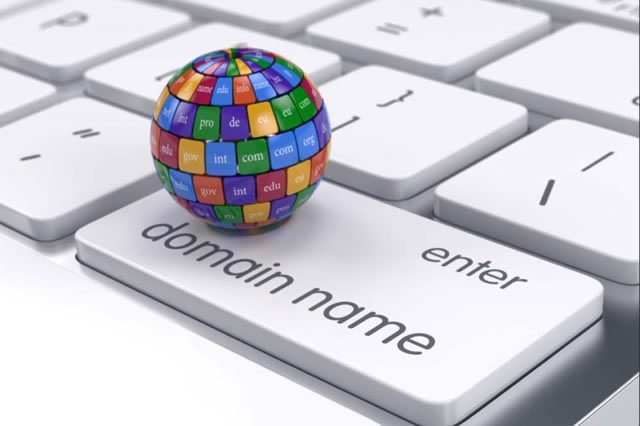 The best way to register a domain name and a gTLD is through an accredited online registrar from ICANN (the Internet Corporation for Assigned Names and Numbers), like us, Atakdomain.com.
The best way to register a domain name and a gTLD is through an accredited online registrar from ICANN (the Internet Corporation for Assigned Names and Numbers), like us, Atakdomain.com.
We provide a domain search tool that allows you or your company to search for the required domain name. If an exact match isn't available, we'll show you a list of available domain names associated with the keyword or phrase you searched on.
How much does registration cost?
Because some gTLDs and ccTLDs are more popular than others, prices among them tend to vary. Some TLDs cost $ 9.99 and others cost $ 2.99 to sign up for a year. You can find the perfect domain name for your business here and register it for 1 to 5 years.
Regrouping gTLDs
There have been many popular gTLDs since the 1980s. These gTLDs include .com, .net, and .org, among others. When you register a domain using one of these TLDs, your website gains implicit authority based on the knowledge of most Internet users of these gTLDs.
Registering a gTLD is simple and cost-effective by domain name registrars such as Atakdomain.com. Choosing a domain name and finding a reliable web hosting company has never been easier.
Categories
- Domain Guide & Registration Process
- Email Services & Setup Instructions
- Step-by-Step How-To Guides
- Insights & Articles from the Tech World
- Server Management & Performance Tips
- Software Development & Coding Resources
- SSL Certificate Guide for Secure Websites
- Choosing the Best Hosting & Optimization Tips
- Key IT Terms & Their Definitions
- SQL Database Management & Queries
- WordPress Setup & Optimization Strategies


